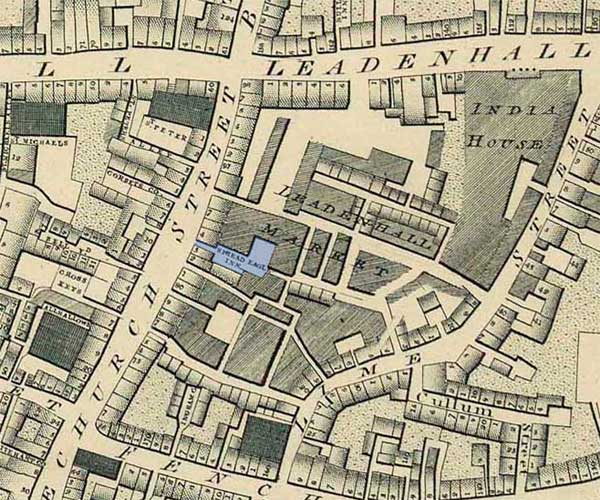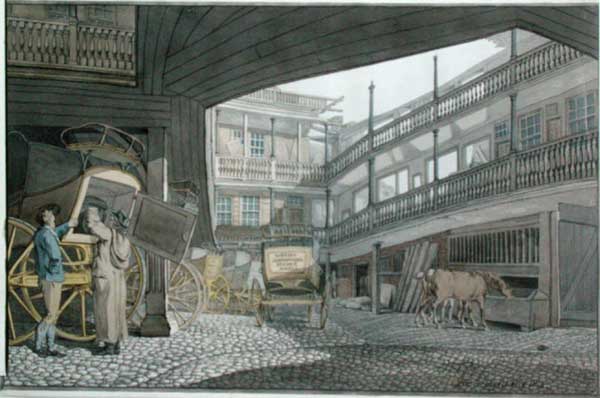| To the Editor of the Suffolk Chronicle.
Sir, - I beg to hand you the following humble remarks, on my individual experience, of the facility and superior accommodation of travelling by "Steam." Having occasion to visit Liverpool, and being desirous to return to Ipswich as expeditiously as possible, I resolved to try what virtue there was in steam, and accordingly determined to commence the trip on Thursday, the 24th instant, by the fast and famous "Orwell,"-Took breakfast at home at eight, and proceeded to Redgate, went on board the "River Queen" and was quickly transferred to the celebrated "Orwell," and here also a goodly number of passengers were put on board. The vessel started at preciseley(sic) ten minutes before ten, and proceeded down the river in good style, while many of our jovial company sat down to an excellent breakfast of roast and boiled, at which they amply played their parts, several of them having had to travel many miles before they came on board; we soon reached Harwich, where we received about 20 passengers- proceeded to Walton-on-the-Naze, and took several more; by this time the wind freshened up to a good whole sail breeze; we now descried the "Albion" about 6 miles "a-head". She had left Ipswich about an hour before us; we were going in "fine style" with the wind on our bow, and many of us wanted our "sea legs;" some half dozen of our country friends took shelter by the larboard paddle-case, when the water sluiced on them as though Neptune was in a merry mood with the green-horn sailors, who shook and wiped their garments and staggered their way below stairs. We quickly came in the wake of the "Albion" and passed her against the "Horns." With wind and tide in our "teeth" we were rapidly leaving the "Albion," and the greater part of the company appeared highly amused with the surrounding scene. The time came now for ringing the signal bell - an earnest cry of "what means that?" Was promptly responded to, "Why, it means, Ladies and Gentlemen, that the dinner is on the table;" this appeared welcome to all-much credit due to the provisions. About thirty passengers sat down to the favourite viands, and the cloth removed, the parties enjoyed themselves with the bottle and glass. By this time we were fast approaching Gravesend, and to the surprise of the crew of the "Orwell", they saw the "Ruby" a magnificent Gravesend boat, of 120 horse power, surnamed the "Pride of the Thames" lying to, with "steam up" evidently intending to give the "Orwell" a race. The "Orwell" was much "out of trim" having an extra-ordinary quantity of good and luggage aboard; however, our worthy engineer well knowing what he had to contend with, at once prepared for the contest, at once prepared for the contest, and the vessels being fairly alongside each other, off they started, each to do their best-stoking away tremendous clouds of smoke-shouts of "Hurrah! Little Orwell! there you have her:" The engineer peeping out of his room exclaiming "come along, Kitty, you shall have SUMMIT to do before you catch us." After racing 8 or 10 miles, and the "Ruby" going far behind, she gave in, and the "Orwell"continuing her speed to the wharf where she landed her passengers, having completed her passage of 100 miles (half of which against a strong ebb) in eight hours and 35 minutes, including all stoppages. Being safely landed, I proceeded to the "Spread Eagle" in Gracechurch Street, and took tea, remained there about an hour, then took an Omnibus for Euston Square, to the Liverpool train station; started for Liverpool at 25 minutes to 9, and arrived at my destination at 25 minutes past 5 next morning; thus performing about 200 miles, by railroad, in eight hours; excellent accommodation; carriages fitted in first-rate style for comfort and convenience, so as to scarcely break the rest. On leaving the vehicle, being free from fatigue, I walked at once to the Docks, which I found were literally crowded with ships; struck with amazement at the magnificence of the Dry Docks, occupied with many large ships and American Liners under repair; took a regular survey of a noble steamer, 1400 tons, in a forward state of building; from thence proceeded to quarters, & took breakfast; commenced my intended business about 10 o'clock; dined at four in the afternoon; mounted the train again about seven in the evening, and arrived in London at five next morning; took coffee; went on board the "Orwell" at half past six, leaving London at 8 o'clock for Ipswich. The "Albion" as usual, started long before us, but we soon passed her, and also those splendid vessels the "Vivid" and the "Victoria" and having made a delightful passage, landed at the Steam Navigation Company's Wharf at Ipswich, at half past five, reaching home in good time for tea: thus shewing(sic) the superior advantage gained in time by the justly admired "Orwell", she arriving in London in good time for the Liverpool train. In doing this, a distance of upwards of 600 miles was performed in about 56 hours, including all stoppages, and allowing good time for transacting business.
I am, Sir, Your's obligingly,
W. READ, Ship-builder.
|
View William Read's 1839 trip to Liverpool by steam in a larger map

View Spread Eagle, Gracechurch Street, London in a larger map

Robert Blemell Schnebbelie
View of the Yard at the Spread Eagle, Gracechurch Street, with Coaches and Horses Feeding, 1814
© Bridgeman Art Library / Guildhall Library, City of London
|